Experts
Keynote Speakers

Richard Haass
Dr. Richard Haass is a veteran diplomat, a prominent voice on American foreign policy, and an established leader of nonprofit institutions. He is in his eighteenth year as president of the Council on Foreign Relations, an independent, nonpartisan membership organization, think tank, publisher, and educational institution dedicated to being a resource to help people better understand the world and the foreign policy choices facing the United States and other countries.
In 2013, he served as the chair of the multiparty negotiations in Northern Ireland that provided the foundation for the 2014 Stormont House Agreement. For his efforts to promote peace and conflict resolution, he received the 2013 Tipperary International Peace Award.
From January 2001 to June 2003, Dr. Haass was director of policy planning for the Department of State, where he directed the policy planning staff and was a principal advisor to Secretary of State Colin Powell. Confirmed by the U.S. Senate to hold the rank of ambassador, Dr. Haass also served as U.S. coordinator for policy toward the future of Afghanistan and U.S. envoy to the Northern Ireland peace process.
Dr. Haass has extensive additional government experience. From 1989 to 1993, he was special assistant to President George H.W. Bush and senior director for Near East and South Asian affairs on the staff of the National Security Council. In 1991, Dr. Haass was awarded the Presidential Citizens Medal for his contributions to the development and articulation of U.S. policy during Operations Desert Shield and Desert Storm. Previously, he served in the Departments of State (1981–1985) and Defense (1979–1980), and was a legislative aide in the U.S. Senate.
A Rhodes Scholar, Dr. Haass holds a bachelor’s degree from Oberlin College and master’s and doctorate of philosophy degrees from Oxford University. He has also received numerous honorary degrees and was a member of the faculty of Harvard University’s Kennedy School of Government and Hamilton College.
Dr. Haass is the author or editor of fourteen books on American foreign policy and one book on management. His latest book is The World: A Brief Introduction, published by Penguin Press.
Dr. Haass was born in Brooklyn, New York, and lives in New York City.
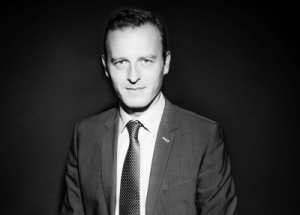
Thomas Gomart
Thomas Gomart holds a PhD in the History of International Relations from Paris I Panthéon-Sorbonne and an EMBA from HEC (Paris). Thomas Gomart was appointed director of the French Institute of International Relations - Ifri after serving as director of strategic development from 2010 to 2015 and founding and directing Ifri’s Russia / NIS Center from 2004 to 2013. Prior to joining Ifri, Thomas Gomart worked at Marne-la-Vallée University (1996-1999) and for the French Ministry of Defense. He has also been a Lavoisier Fellow at the State Institute of International Relations (MGIMO – Moscow, 2001), visiting fellow at the Institute of Security Studies (European Union – Paris, 2002), and a Marie Curie Fellow at the Department of War Studies (King’s College – London, 2003).
His current research focuses on Russia, digital governance, French foreign policy, country risks and think tanks. His most recent book, L’Affolement du monde: 10 enjeux géopolitiques (Tallandier, 2019), is the recipient of the Geopolitics Book Award 2019.
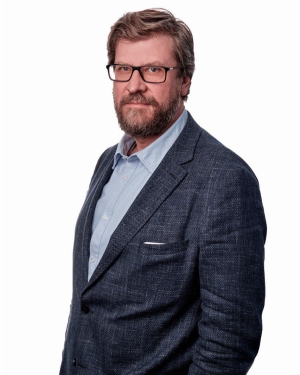
Fyodor Lukyanov
Fyodor Lukyanov is chairman of the Council on Foreign and Defense Policy, the oldest Russian NGO providing expertise in the foreign policy field, and editor-in-chief of Russia in Global Affairs, a journal published in Russian and English with participation of Foreign Affairs. As head of Russia in Global Affairs since its founding in 2002, he greatly contributed to making this journal Russia’s most authoritative source of expert opinion on global development issues. He is also a research director at the International Valdai discussion club and a member of the Presidium of the Russian International Affairs Council (RIAC). Fyodor Lukyanov is a research professor at the Higher School of Economics in Moscow. Mr. Lukyanov worked as a correspondent, commentator, and editor for numerous Russian print and electronic media. Now he is one of the most known commentators of Russian foreign policy worldwide. In 2011, he received an award from the Russian government for his contribution to international journalism. Previous positions: editor, then senior editor, Department for Broadcasting to Northern Europe, International Radio Moscow (Voice of Russia, 1990–1993); correspondent, international desk, Segodnya newspaper (1994–1997); editor, international desk, Vremya MN newspaper (1997–2000); editor, international desk and deputy editor-in-chief of Vremya Novostei newspaper (2000–2002). He graduated from Moscow State University in 1991 with a degree in German language and literature.
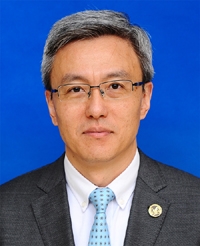
Dongxiao Chen
Professor and Dr. Dongxiao Chen is the president of the Shanghai Institute for International Studies (SIIS). Dr. Chen got his PhD from Fudan University. He specializes in China’s foreign policy, China-U.S. relations, and the United Nations. He has led numerous research projects commissioned by China’s National Foundation of Social Sciences Studies, the Ministry of Foreign Affairs, the Ministry of Finance, the Taiwan Affairs Office of State Council, and others. Dr. Chen has published extensively on UN reform and China’s multilateral diplomacy. He is the chief editor of the China Quarterly of International Strategic Studies (CQISS), a flagship English journal on China’s diplomacy published by SIIS and World Scientific Publishing House (Singapore). He is also an adjunct professor of Shanghai International Studies University.
Dr. Chen is the high level advisor of the Independent Advisory Team (ITA) for ECOSOC Dialogue on long-term positioning of the United Nations Development System (2016), a member of ASEAN Regional Forum’s (ARF) Expert and Eminent Persons group (EEP), senior advisor on economic diplomacy for China’s Foreign Ministry, and senior advisor of the International Business Leaders Advisory Council for the Mayor of Shanghai (IBLAC). He also holds the position of vice chair of the China National Association of International Relations.
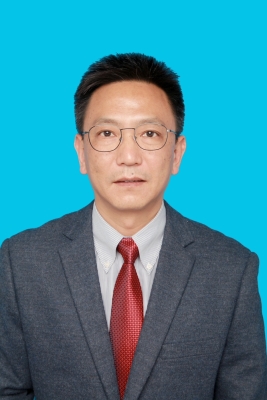
Tao Xie
Professor Tao Xie is the dean of the School of International Relations and Diplomacy at Beijing Foreign Studies University. He holds a PhD in Political Science from Northwestern University. Professor Xie’s primary research interests are American politics and China-U.S. relations. He has published extensively in both English and Chinese, including most recently “In the Shadow of Strategic Rivalry: China, America, and the Asian Infrastructure Investment Bank” in the Journal of Contemporary China. He is an adjunct professor at the Australia-China Relations Institute of the University of Technology Sydney.
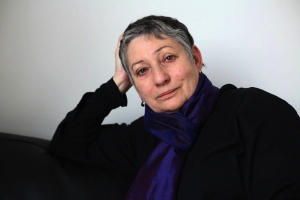
Lyudmila Ulitskaya
Lyudmila Ulitskaya is an internationally acclaimed modern Russian novelist and short-story writer. She has received several international and Russian literary awards, including the Russian Booker Award for The Kukotsky Enigma, for which she was the first woman recipient. Themes in her works include intelligentsia in Soviet culture, women’s shaping of gender roles in society, the need for racial and religious tolerance, and day-to-day life as a literary subject. She holds a degree in genetics from Moscow State University and has experience within the field of genetics and biochemistry.
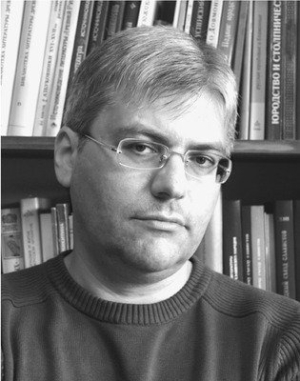
Evgeniy Vodolazkin
Born in Kyiv, Evgeniy Vodolazkin is a Russian prosaist, linguist, and specialist on Russian medieval literature. He holds a bachelor’s from Kyiv University as well as a doctorate in philology from the Pushkin House, formerly known as the Institute of Russian Literature. He is the author of bestselling novels Brisbane, Aviator, Laurus, historical fiction novel Solovyev and Larionov, and many others. He has been nominated for and received several literary prizes, including the Big Book award, the Yasnaya Polyana Literary Award, and was a finalist for the Russian Booker award. Vodolazkin’s novel Laurus became a literary sensation in 2013 after receiving the Yasnaya Polyana and Big Book awards as well as short-list nominations for the National Bestseller and Russian Booker awards. Evgeniy Vodolazkin’s most recent works include The Island Absolution and Sister of Four. His works have been translated into many languages worldwide.
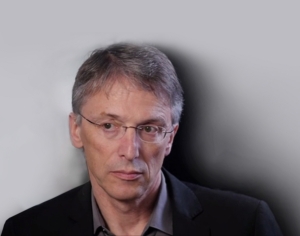
Yuri Slezkine
Yuri Slezkine is a professor of the Graduate School at the University of California, Berkeley; a senior research fellow at St. Edmund College, Oxford; a senior research associate at the Russian Presidential Academy of National Economy and Public Administration; and a member of the American Academy of Arts and Sciences. He has been a fellow at the Hoover Institution, the International Institute at the University of Michigan, the Center for Advanced Study in the Behavioral Sciences, the John Simon Guggenheim Memorial Foundation, and Wissenschaftskolleg zu Berlin. He served as a distinguished visiting professor at Vassar College, an honorary professor at the University of Nottingham, and a visiting professor at the Ludwig-Maximilians University in Munich and Sciences Po in Paris. His book, The Jewish Century (Princeton UP, 2004), has received several awards and has been translated into ten languages. His most recent book, The House of Government: A Saga of the Russian Revolution (Princeton UP, 2017), was named among the best books of 2017 by the New York Times, Spectator, the Guardian, the Economist, the London Review of Books, and Le Monde, among others. It has appeared in English, Russian, French, Dutch, German, Italian, Polish, Spanish, and Estonian. The Chinese version is scheduled to appear this year.
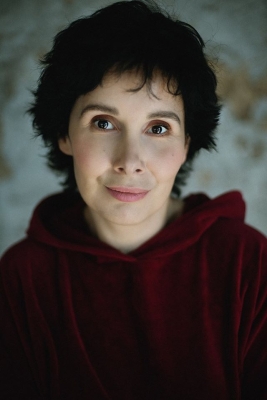
Galina Yuzefovich
Galina Yuzefovich is an internationally renowned Russian literary critic and theoretician. She has been called a leading literary critic whose reviews have a tangible effect on the book market of Russia. She writes weekly columns for the online publication Meduza that has around 15,000 readers. In 2016, Yuzefovich published the collection of articles “Удивительные приключения рыбы-лоцмана” (The Wonderful Adventures of the Pilot Fish). It is a wonderful introduction to contemporary Russian and world literature, and Yuzefovich looks at the significant authors of the 20th and 21st century. She analyzes around a hundred authors in total.
Presenters
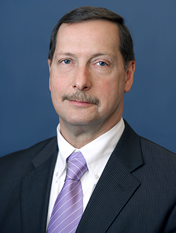
Alexey Arbatov
Dr. Arbatov is the head of the Center for International Security at IMEMO in Moscow and a scholar in residence in the Nonproliferation Program at the Carnegie Moscow Center. He is a full member of the Russian Academy of Sciences, where he leads the Center for International Security at the Institute for World Economy and International Relations. Dr. Arbatov sits on the research council of the Russian Ministry of Foreign Affairs, the Russian Council for Foreign and Defense Policy, the governing board of SIPRI, and the board of CNS, among others. He is also the vice president of the Luxembourg Forum. He served as a member of the Soviet delegation to the START-1 negotiations and as deputy chairman of the Duma Defense Committee. He was a member of the Duma and served as vice chairman of the YABLOKO party. Dr. Arbatov has published numerous books and articles on international relations, foreign and military policy, and arms control, and disarmament.
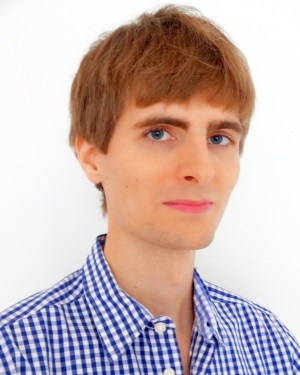
Arvid Bell
Arvid Bell is a lecturer on Government at Harvard University, director of the Negotiation Task Force (NTF) at the Davis Center for Russian and Eurasian Studies, and partner at Negotiation Design & Strategy (NDS), a training, advisory, and research development group. He specializes in complex conflict analysis, negotiation strategy, and international security. Arvid has published research in International Negotiation, Negotiation Journal, and the Peace Report, served as a co-investigator of the Middle East and North Africa Negotiation Report, and is also a fellow with the Institution Quraysh for Law & Policy (iQ), an international negotiation expert with the Conflict Analytics Lab at Queen’s University, and a member of the executive board of the Arms Control Negotiation Academy (ACONA).
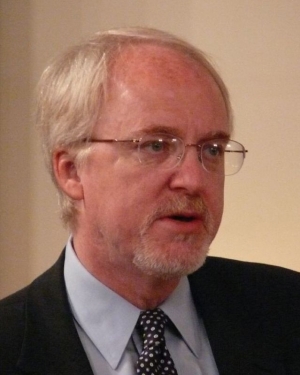
John Beyrle
John Beyrle is a career Foreign Service Officer and specialist in Russian and Eastern European affairs. He served as Ambassador of the United States to the Russian Federation from July 3, 2008, until January 10, 2012, and as Ambassador to Bulgaria from 2005 to 2008. Beyrle was Ambassador in Moscow during the “reset” of the Russian-American relationship, which saw the signing of the New START arms control treaty, agreement on peaceful uses of nuclear energy, Russia’s accession to the World Trade Organization, and liberalized visa formalities for American and Russian travelers. He retired from the State Department in July 2012 with the rank of Career Minister, the diplomatic equivalent of a three-star general. He serves on the board of directors of several non-profit foundations, including as chairman of the U.S. Russia Foundation, and as an adviser and business consultant on Central and Eastern Europe, Russia, and other countries of the former Soviet Union.
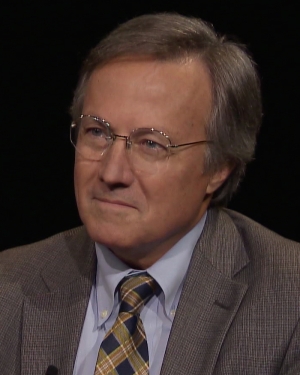
Thomas Blanton
Thomas Blanton is the director (since 1992) of the independent non-governmental National Security Archive at George Washington University (www.nsarchive.org), which won the George Polk Award in 2000 for “piercing self-serving veils of government secrecy.” Under Blanton’s direction, the Archive has organized and led multinational documentary investigations and high-level critical oral history conferences on the East German workers’ uprising of 1953 (Potsdam 1993), the Prague Spring 1968 (Prague 1994), the Hungarian revolution of 1956 (Budapest 1996), Polish martial law 1981 (1997 Warsaw), the Bay of Pigs invasion (1996 and 2001 Havana), the Cuban Missile Crisis (1992 and 2002 Havana), the new Cold War history (2000 Moscow), the end of the Cold War (1999 Georgia, Prague, Budapest, Warsaw), the Rwanda and Srebrenica genocides (The Hague 2014 and 2015), the denuclearization of Kazakhstan (Semipalatinsk 2015), Ukraine and nuclear weapons (Siena 2019), and seven summer schools for young Russian faculty at regional universities in cooperation with Kuban State, Voronezh State, and Saratov State universities.
Educated at Harvard University, Blanton is series editor for the National Security Archive’s online and book publications of more than a million pages of declassified U.S. government documents obtained through the Archive’s more than 60,000 Freedom of Information Act requests. His articles have appeared in Diplomatic History, Foreign Policy, Wilson Quarterly, the New York Times, and the Washington Post, among many others. Together with Dr. Svetlana Savranskaya, he has published more than four dozen electronic briefing books of declassified documents on Soviet dissidents, U.S.-Soviet and U.S.-Russian relations, NATO expansion, and the Nunn-Lugar program, among other timely topics, and two books with Central European University Press: The Last Superpower Summits: Gorbachev, Reagan, and Bush (2016), which Choice Magazine named an “Outstanding Academic Title 2017”; and Masterpieces of History: The Peaceful End of the Cold War in Europe 1989 (2010), which won the Link-Kuehl Prize in 2011 from the Society for Historians of American Foreign Relations. His other books include The Chronology (Warner Books, 1987) on the Iran-contra scandal, and White House E-Mail (New Press, 1995) on the Archive’s landmark lawsuit that saved over 220 million records from Reagan through Obama. His honors include the Emmy Award (2004) for individual achievement in news and documentary research and the Newcomen Prize in history from Harvard (1979).
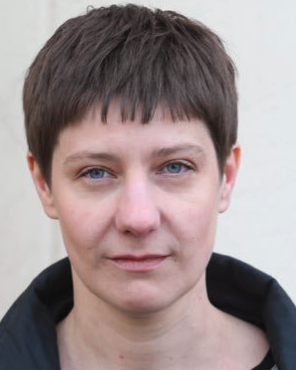
Irina Borogan
Irina Borogan is a Russian investigative journalist, co-founder and deputy editor of Agentura.ru, a watchdog of the Russian secret services’ activities. She chronicled the Kremlin’s campaign to gain control of civil society and strengthen the government’s police services under the pretext of fighting extremism. She is coauthor with Andrei Soldatov of The New Nobility: The Restoration of Russia’s Security State and the Enduring Legacy of the KGB (PublicAffairs, 2010), The Red Web: The Struggle Between Russia’s Digital Dictators and the New Online Revolutionaries (PublicAffairs, 2015) and The Compatriots: The Brutal and Chaotic History of Russia’s Exiles, Émigrés, and Agents Abroad (PublicAffairs, 2019).
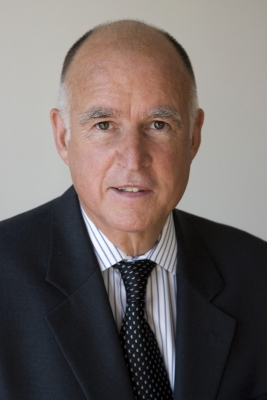
Jerry Brown
Brown completed his fourth term as governor of the State of California in 2019. He began his career in public service in 1969 as a trustee for the LA Community College District and became California secretary of state in 1970 and governor of California in 1974 and 1978. After his governorship, Brown lectured and traveled widely, practiced law, served as chairman of the state Democratic Party, and ran for president. Brown was elected mayor of Oakland in 1998 and California attorney general in 2006; he was elected to a third gubernatorial term in 2010 and a fourth term in 2014. During this time, Brown helped eliminate the state’s multi-billion budget deficit, spearheaded successful campaigns to provide new funding for California’s schools, and established a robust rainy day fund to prepare for the next economic downturn. His administration established nation-leading targets to protect the environment and fight climate change. Brown attended the University of California, Berkeley, and earned a JD at Yale Law School.
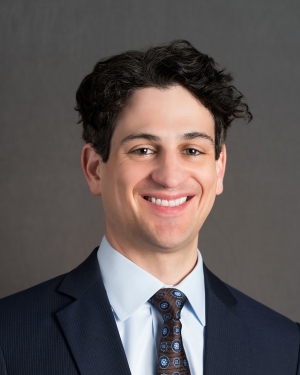
Samuel Charap
Samuel Charap is a senior political scientist at the RAND Corporation. His research interests include the political economy and foreign policies of Russia and the former Soviet states; European and Eurasian regional security; and U.S.-Russia deterrence, strategic stability, and arms control.
From November 2012 until April 2017, Charap was the senior fellow for Russia and Eurasia at the International Institute for Strategic Studies (IISS). Prior to joining the IISS, he served at the U.S. Department of State as senior advisor to the undersecretary for Arms Control and International Security and on the Secretary’s Policy Planning Staff, covering Russia and Eurasia. From 2009 to 2011, Charap was director for Russia and Eurasia at the Center for American Progress.
Charap’s book on the Ukraine crisis, Everyone Loses: The Ukraine Crisis and the Ruinous Contest for Post-Soviet Eurasia (coauthored with Timothy Colton), was published in January 2017. His articles have appeared in the Washington Quarterly, Foreign Affairs, Survival, Current History and several other journals.
Charap was a visiting scholar at the Carnegie Moscow Center and the International Center for Policy Studies (Kyiv), and a Fulbright Scholar at the Moscow State Institute of International Relations. He is fluent in Russian and proficient in Ukrainian. Charap holds a PhD in political science and an MPhil in Russian and East European studies from the University of Oxford, where he was a Marshall Scholar. He received his BA in Russian and Political Science from Amherst College. He is a life member of the Council on Foreign Relations.
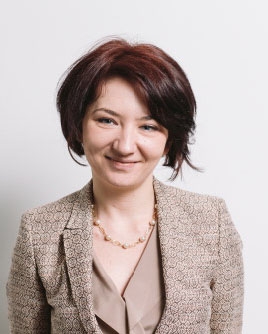
Roxana Cristescu
Roxana Cristescu is the head of CMI’s Programme in Eurasia and the director of EU relations. She leads CMI’s programme activities in the region. Ms. Cristescu joined CMI in 2009 and previously worked as adviser for the Black Sea and Central Asia Programme, with a special focus on CMI’s mediation-related activities. Before joining CMI, Cristescu worked in various conflict-affected areas including Ethiopia, Sudan, Kosovo (Mitrovica Region), Moldova/Transdniestria, Ukraine, and Lebanon. She holds a BA in Political Sciences from the University of Bucharest and two master’s degrees from Florence and Rome University in Mediation and Security Studies. She is currently enrolled for a Master of Science in Mediation Studies at Queens University, Belfast. Cristescu is among others a member of the United Nations Mediation Roster and a member of the UN Women Central and Southeastern Europe (CSEE) Sub-regional Roster of Experts.
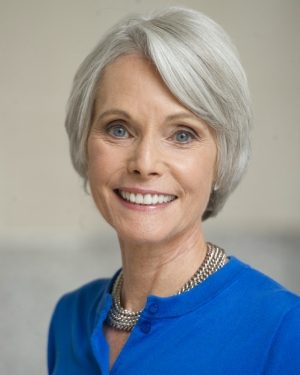
Jill Dougherty
Jill Dougherty is an expert on Russia and the former Soviet Union. In her three-decade career with CNN she served as foreign affairs correspondent, based in Washington, D.C., where she covered the State Department and provided analysis on international issues. Dougherty previously served as U.S. affairs editor for CNN International; managing editor of CNN International Asia/Pacific, based in Hong Kong; and CNN’s Moscow bureau chief and correspondent. From 1991 to 1996 she was CNN White House correspondent, covering the presidencies of George H. W. Bush and Bill Clinton. In 2013-14 she was a fellow at the Shorenstein Center on Media, Politics and Public Policy at Harvard University’s John F. Kennedy School of Government, where she pursued research on Russia’s mass media. Dougherty received her BA degree in Slavic Languages and Literature from the University of Michigan, Ann Arbor and her MA from Georgetown University, where she researched Russia’s soft power diplomacy.
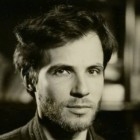
Filipp Dzyadko
Filipp Dzyadko is the founder and editor-in-chief of the education platform Arzamas (arzamas.academy). In 2007, he defended a thesis on the reception of ancient culture in the Russian literature of the nineteenth century. He has worked as a Latin language teacher, editor of Esquire, editor-in-chief of Bolshoi Gorod, a television host on Dozhd, and a radio host on Kultura. In 2015, he became a co-founder of the education platform Arzamas with actress and television presenter Anastasia Chukhrai. In 2015, Dzyadko also launched the platform Relikva (relikva.com) dedicated to private memory.
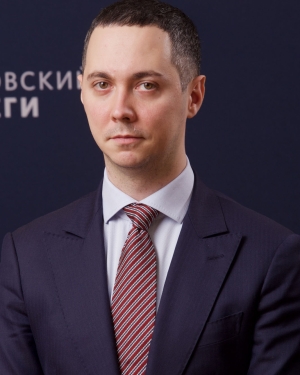
Alexander Gabuev
Alexander Gabuev is a senior fellow and the chair of the Russia in the Asia-Pacific Program at the Carnegie Moscow Center. His research is focused on Russia’s policy toward East and Southeast Asia, political and ideological trends in China, and China’s relations with its neighbors—especially those in Central Asia. Prior to joining Carnegie, Gabuev was a member of the editorial board of Kommersant publishing house and served as deputy editor in chief of Kommersant-Vlast, one of Russia’s most influential newsweeklies. Gabuev started his career at Kommersant in 2007 working as a senior diplomatic reporter, as a member of then-president Dmitry Medvedev’s press corps, and as deputy foreign editor for Kommersant. His reporting covered Russia’s relations with Asian powers and the connection between Russian business interests and foreign policy. Gabuev has previously worked as a nonresident visiting research fellow at the European Council on Foreign Relations (ECFR) and taught courses on Chinese energy policy and political culture at Moscow State University. In April-June 2018, Gabuev was a visiting scholar at Fudan University (Shanghai, China), and was teaching courses on Sino-Russian relations. Gabuev is a Munich Young Leader of Munich International Security Conference and a member of the Council on Foreign and Defense Policy (Russia).
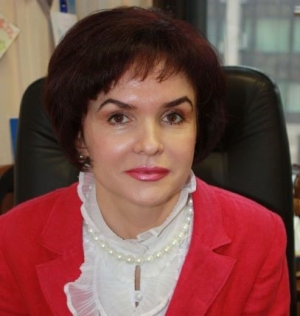
Oksana Gaman-Golutvina
Dr. Gaman-Golutvina is the chair of the Department of Comparative Politics at the Moscow State Institute of International Relations (MGIMO) and a professor at the Higher School of Economics. She specializes in comparative studies of political elites and teaches courses in comparative politics, Russian politics, and the political transformations in post-communist countries, as well as political and administrative governance. In 2009, at the Congress of International Political Science Association (IPSA), Professor Gaman-Golutvina was elected to serve on the Executive Board of Research Committee “Political Elites.” She has been serving as president of the Russian Political Science Association since 2010. She became a member of the Civic Chamber of the Russian Federation in 2017, serving also as a member of the Public Committee on Science and Education. In 2019, she was elected to be a corresponding member of the Russian Academy of Sciences (RAS). She is a member of the editorial boards of several professional journals, including World Political Science, Islam in the Modern World, PolitEx, The Authority, Values and Meanings, Journal of Law and Administration, and Outlines of Political Transformation: Politics, Economics, Law. Dr. Gaman-Golutvina is the author or coauthor of several major Russian textbooks and academic series on Political Science, including Comparative Political Science (2015), Political Comparative Studies (2020), and Modern Political Science: A Methodology (2019), the first publication in Russia to examine methodological approaches in the field of Political Science.
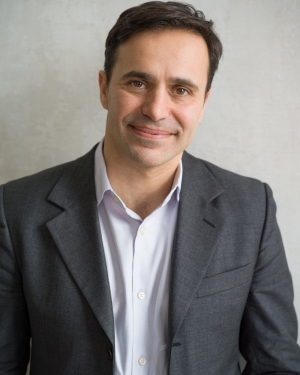
Keith Gessen
Keith Gessen is a Russian-born American novelist, journalist, literary translator, contributor to the New Yorker and the London Review of Books, founding editor of n+1, a thrice-yearly magazine of literature, politics, and culture based in New York City. He is also an assistant professor of journalism at the Columbia University Graduate School of Journalism. He is the editor of three nonfiction books and the translator or co-translator, from Russian, of a collection of short stories, a book of poems, and a work of oral history. He is also the author of a novel, All the Sad Young Literary Men. Most of Gessen’s journalistic work has focused on the effects of the collapse of communism on the countries of what used to be the Soviet Union. Most recently he has been writing on the post-revolutionary crisis in Ukraine, both from the perspective of the hopeful (pro-European) western and central portions of the country, and its traumatized (pro-Russian) east. Gessen began his career as a book reviewer for the early online magazine FEED and subsequently contributed review-essays to Dissent, the Nation, and the New York Review of Books. Gessen graduated from Harvard with a BA in History and Literature in 1998 and subsequently received an MFA in Creative Writing (Fiction) from Syracuse University. In 2014-2015, he was a fellow at the Cullman Center for Writers and Scholars at the New York Public Library.
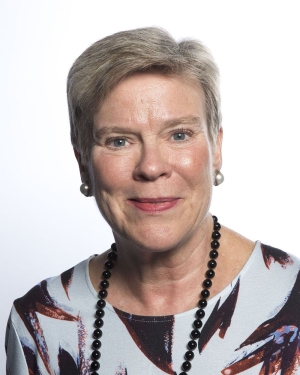
Rose Gottemoeller
Rose Gottemoeller is a distinguished arms-control expert with decades of service in the U.S. government in the Departments of State and Energy as well as the National Security Council. Gottemoeller was also the chief U.S. negotiator of the 2010 New Strategic Arms Reduction Treaty (New START), which was signed by Presidents Barack Obama and Dmitry Medvedev on April 8, 2010. Currently, Gottemoeller is a Payne Distinguished Lecturer at Stanford University’s Center for International Security and Cooperation and a research fellow at the Hoover Institution. She served as NATO deputy secretary-general from October 2016 to October 2019. For the five years prior, she served as undersecretary for arms control and international security at the U.S. Department of State. Previously, she was a senior associate with the Carnegie Endowment for International Peace, with joint appointments to the Nonproliferation and Russia programs. She served as the director of the Carnegie Moscow Center in 2006-2008. From 1998 to 2000, at the Department of Energy, she served as deputy undersecretary for defense nuclear nonproliferation and as assistant secretary and director for nonproliferation and national security, where she was responsible for all nonproliferation cooperation with Russia and the Newly Independent States. From 1993 to 1994, she served on the National Security Council staff as director for Russia, Ukraine, and Eurasia Affairs, with responsibility for nuclear threat reduction in Russia, Ukraine, Kazakhstan, and Belarus. Fluent in Russian, Gottemoeller has also worked at the International Institute for Strategic Studies in London, as a social scientist at the RAND Corporation, and as a Council on Foreign Relations international affairs fellow, and has taught on Soviet military policy and Russian security at Georgetown University.
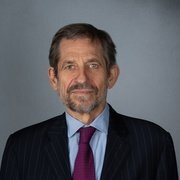
Thomas Graham
Thomas E. Graham is a distinguished fellow at the Council on Foreign Relations. He is also currently a senior advisor at Kissinger Associates, Inc., where he focuses on Russian and Eurasian affairs. He is a cofounder of the Russian, East European, and Eurasian studies program at Yale University and sits on its faculty steering committee. He is also a research fellow at the MacMillan Center at Yale, where he teaches a course on U.S.-Russian relations. Graham was special assistant to the president and senior director for Russia on the National Security Council staff from 2004 to 2007, during which he managed a White House-Kremlin strategic dialogue. He was director for Russian affairs on the staff from 2002 to 2004.
Graham was a lecturer in Global Affairs and Political Science at Yale University from 2011 to 2019, teaching courses on U.S.-Russian relations and Russian foreign policy, as well as cybersecurity and counterterrorism. He was a Foreign Service officer for fourteen years. His assignments included two tours of duty at the U.S. Embassy in Moscow in the late Soviet period and in the middle of the 1990s during which he served as head of the political internal unit and acting political counselor. Between tours in Moscow, he worked on Russian and Soviet affairs on the policy planning staff at the U.S. Department of State and as a policy assistant in the office of the under secretary of defense for policy.
Graham serves on the Kennan council of the Kennan Institute of the Wilson Center and on the advisory board of Russia Matters, a project of the Harvard Kennedy School’s Belfer Center for Science and International Affairs with the goal of enhancing the understanding of Russia among policy-makers and the interested public. He also serves on the editorial board of the US-Canada Journal of the USA-Canada Institute of the Russian Academy of Sciences.
Graham holds a BA in Russian Studies from Yale University, an MA in History, and a PhD in Political Science from Harvard University.

Eric Green
Eric Green currently serves as special assistant to the president and senior director for Russia and Central Asia on the White House National Security Council staff. A member of the Senior Foreign Service of the United States, Green previously served as associate dean of the Foreign Service Institute, as director of the State Department’s Office of Russian Affairs, and as the deputy chief of mission at the U.S. embassies in both Warsaw and Reykjavik. Since joining the diplomatic corps in 1990, Green’s other assignments have taken him to Belfast, Manila, Adana, Moscow, Kyiv, and the State Department’s Policy Planning Staff.
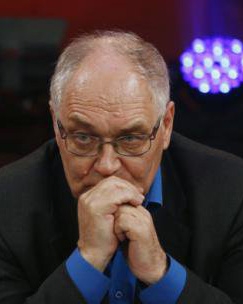
Lev Gudkov
Born in 1946 in Moscow, Dr. Gudkov studied journalism, sociology, and philology at Moscow State University. He completed his post-graduate degree at the Institute for Philosophy of the USSR Academy of Sciences in 1977, completed his dissertation for Candidate of the Philosophical Sciences in 1979, and became a Doctor of Philosophy in 1995. Professor Gudkov has worked at various institutions of the USSR Academy of Sciences since 1970. He has been a researcher in the Russian Centre for Public Opinion Research (VCIOM) and head of the Department of Social and Political Studies since 1988. Prof. Gudkov has been the director of the Levada Center since 2006. He is also the editor-in-chief of the magazine Russian Public Opinion Herald and is a lecturer at the Higher School of Economics.
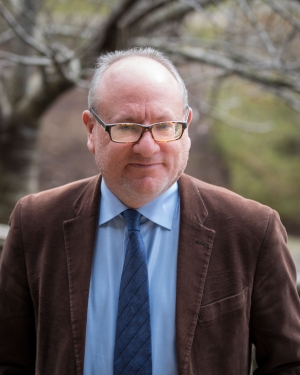
Michael Kimmage
Michael Kimmage is a professor of history at the Catholic University of America. From 2014 to 2017, he served in the Secretary’s Office of Policy Planning at the U.S. Department of State, where he held the Russia/Ukraine portfolio. His latest book was published in April 2020 with Basic Books and is titled The Abandonment of the West: the History of an Idea in American Foreign Policy.
Michael Kimmage specializes in the history of the Cold War, in twentieth-century U.S. diplomatic and intellectual history and in the U.S.-Russian relations since 1991. Professor Kimmage has published four books to date: The Conservative Turn: Lionel Trilling, Whittaker Chambers and the Lessons of Anti-Communism (Harvard University Press, 2009); In History’s Grip: Philip Roth’s Newark Trilogy (Stanford University Press, 2012); Wolfgang Koeppen’s Journey through America (Berghahn, 2012), a German-language travelogue published in 1959 and translated by Professor Kimmage; and The Abandonment of the West: the History of an Idea in American Foreign Policy (Basic Books, 2020). Professor Kimmage has written articles and book reviews for the New York Times, Washington Post, New Republic, Frankfurter Allgemeine Zeitung, the Jewish Review of Books, and the Los Angeles Review of Books. He has been a visiting professor at the Ludwig Maximilian University in Munich and at Vilnius University in Lithuania.
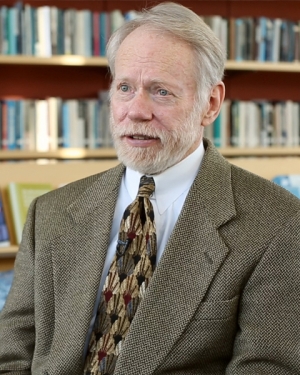
Robert Legvold
Dr. Legvold is Marshall D. Shulman Professor Emeritus in the Department of Political Science at Columbia University, where he specialized in the international relations of the post-Soviet states. He was director of the Harriman Institute, Columbia University, from 1986 to 1992. Dr. Legvold’s areas of particular interest are the foreign policies of Russia, Ukraine, and the other new states of the former Soviet Union, U.S. relations with the post-Soviet states, and the impact of the post-Soviet region on the international politics of Asia and Europe. He is currently co-director of the American Academy of Arts and Sciences project, “Meeting the Challenges of a New Nuclear Age,” and co-director of the joint Moscow State University (MSU)-Moscow State Institute of International Relations (MGIMO) MA program, “Public Policy in the Post-Soviet Space.” His most recent book is Return to Cold War (Polity, 2016). He is a fellow of the American Academy of Arts and Sciences and a foreign member of the Russian Academy of Social Sciences.
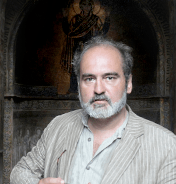
Alexei Lidov
Dr. Lidov is a world known art historian and Byzantinist, a specialist in Byzantine iconography, Christian sacred images, and theory of art. Lidov is the founder and director of the Research Centre for Eastern Christian Culture in Moscow (since 1991), the head of the Department at the Institute for World Culture of Lomonosov Moscow State University, and a full member (academician) of the Russian Academy of Arts as well as a member and fellow of St. Catherine’s College at Oxford University. Lidov is the author of more than 100 research publications in many languages, among them 30 monographs, catalogues and collections of articles. He coined the term ‘hierotopy’ and established a new field of studies in the creation of sacred spaces (see ‘Alexei Lidov’ in Wikipedia, and www.hierotopy.ru).
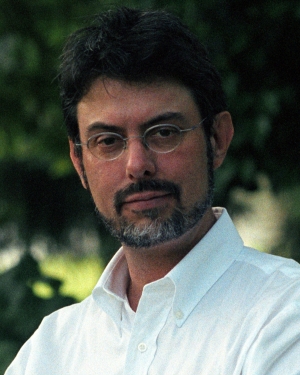
Anatol Lieven
Anatol Lieven is a senior fellow for Russia and Europe at the Quincy Institute for Responsible Statecraft in Washington, DC. He was a professor at Georgetown University in Qatar from 2014 to 2021. He is a member of the academic board of the Valdai discussion club in Russia. He also serves on the advisory committee of the South Asia Department of the British Foreign and Commonwealth Office. He holds a BA and PhD from Cambridge University in England.
His latest book, Climate Change and the Nation State, was published in 2020. An updated paperback edition is appearing in September.
From 1985 to 1998, Anatol Lieven worked as a British journalist in South Asia, the former Soviet Union, and Eastern Europe, and is author of several books on Russia and its neighbors, including Ukraine and Russia: A Fraternal Rivalry.
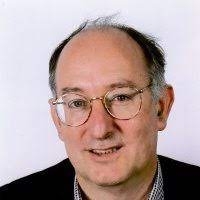
Dominic Lieven
Professor Dominic Lieven graduated first in Cambridge University’s class of 1973 with a BA in History and was a Kennedy Scholar at Harvard in 1973-1974. Subsequently, he has been inter alia a Humboldt Fellow in Germany and a visiting professor at Tokyo University and Harvard. He received his PhD from the School of Slavonic Studies at University College London in 1978.
Professor Lieven was a lecturer, senior lecturer and professor at the London School of Economics (LSE; 1978-2011). He became a fellow of the British Academy in 2001. He was head of the Department of Government from 2001 to 2004 and head of the Department of International History from 2009 to 2011. From there he was a senior research fellow at Trinity College, Cambridge (2011-2019) and has been an honorary fellow since 2019. In 2014, he was awarded the Order of Friendship by the Russian Federation.
He is currently a visiting professor in the Department of International History at LSE. Professor Lieven is also the chair of the board of the Paulsen Programme at LSE, hosted by the Department of International History at LSE.
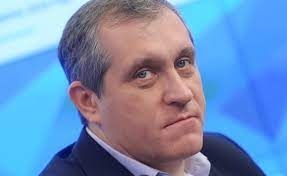
Boris Mezhuev
Dr. Boris V. Mezhuev is a lecturer in the History of Russian Philosophy Department of Lomonosov Moscow State University and is a member of the International Research Council of Academia Kantiana at Immanuel Kant Baltic Federal University in Kaliningrad. In 1997 he received his PhD in Philosophy from Lomonosov Moscow State University for his thesis titled The Russian Sources of V. S. Soloviev’s Philosophy: Socio-cultural Context of the 1870-90s. He was a research fellow at Texas A&M University from 1998 to 1999. From 2010 to 2012, Mezhuev served as academic director for Strategy 2020, a foundation for civil initiatives associated with the United Russia party. He was the editor-in-chief of the website Terra America, which specializes in American politics, and from 2013 to 2016, he was the chief editor of the journal Izvestiya.
Dr. Mezhuev is a member of the editorial board of the Complete Academic Collection of Works and Letters by Vladimir Solovyov and the chief of the editorial board of the conservative website Russkaya Idea (politconservatism.ru). He serves on the editorial boards of several journals, including Solovyovskiye issledovaniya [Solovyov Studies], Polis (Politicheskie issledovania), and Tetradi po konservatismu.
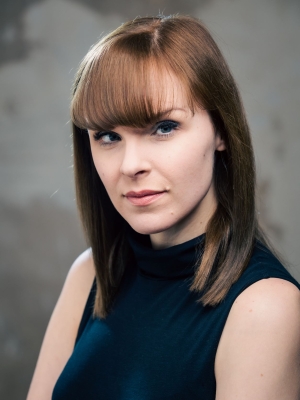
Hanna Notte
Hanna Notte is a senior research associate at the Vienna Center for Disarmament and Non-Proliferation, where she focuses on Russian foreign policy in the Middle East, WMD arms control and nonproliferation in the Middle East, and Russia-West relations. She previously served as a non-resident scholar with the James Martin Center for Nonproliferation Studies (CNS) and as senior political officer with the Shaikh Group, a non-profit consultancy focused on Track II diplomacy and conflict mediation in the Middle East. She supported the organization’s engagement with Russia related to the “Syria Track II Dialogue Initiative” and also worked on other Track II dialogues related to the broader region. Hanna holds a DPhil in International Relations from the University of Oxford (St. Antony’s College), where she also received an MPhil in 2014. She spent a year between 2015-2016 in Moscow on an Alfa Fellowship with the Institute of Oriental Studies and the Carnegie Moscow Center. Other visiting research positions have included the IISS’ Middle East office in Manama, Bahrain, and the Konrad-Adenauer-Foundation’s Syria/Iraq office in Beirut, Lebanon. Hanna holds a BA in Social and Political Sciences from the University of Cambridge and worked at Goldman Sachs’ London offices as a strategic equity analyst from 2010-2012. She has lectured on Russian foreign policy in the Middle East, including at the Higher School of Economics in Moscow, the American University of Paris, and the Middlebury Institute of International Studies at Monterey, and is regularly invited to speak at international events and conferences on the subject. She is a German national who speaks Russian, Arabic, and French.
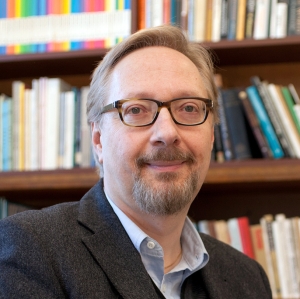
Nicolai Petro
Nicolai N. Petro is a professor of Political Science at the University of Rhode Island, where he previously held the Silvia-Chandley Professorship of Peace Studies and Nonviolence. His scholarly awards include two Fulbright awards (one to Russia and one to Ukraine), a Council on Foreign Relations Fellowship, and research awards from the Foreign Policy Research Institute, the National Council for Eurasian and East European Research, the Kennan Institute for Advanced Russian Studies in Washington, DC, and the Hoover Institution at Stanford University. In 2021 he was a visiting fellow at the Institute of Advanced Studies at the University of Bologna, Italy.
In addition to his scholarly writings, which are available on his web site www.npetro.net, he has written for Asia Times, the American Interest, Boston Globe, Christian Science Monitor, the Guardian (UK), Harvard International Review, International New York Times, Kyiv Post, Moscow Times, the Nation, the National Interest, Wilson Quarterly, World Politics Review, and the Yale Journal of International Affairs.
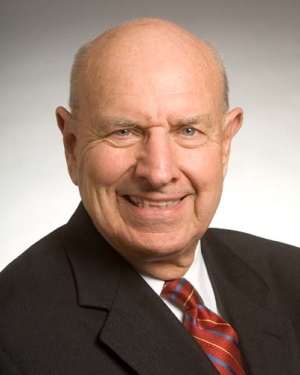
Thomas Pickering
Ambassador Tom Pickering is vice chair of Hills & Company. Tom served as undersecretary of state for Political Affairs under President Clinton and as U.S. ambassador to Russia, India, Israel, El Salvador, Nigeria, and Jordan. He was the U.S. ambassador to the United Nations in the first Bush Administration, and held positions including assistant secretary of state for the Bureau of Oceans, Environmental and Scientific Affairs, and special assistant to Secretaries of State William Rogers and Henry Kissinger. After government service, Tom joined the Boeing Company as senior vice president of International Relations and led its transition to a global organization. He chairs or serves on many nonprofit boards, including the International Crisis Group, and as chairman of the board of the American Academy of Diplomacy. Tom speaks French, Spanish, and Swahili fluently and also Arabic, Hebrew, and Russian.
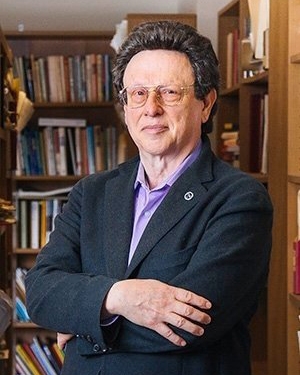
William Potter
Dr. William Potter is the Sam Nunn and Richard Lugar Professor of Nonproliferation Studies and founding director of the Center for Nonproliferation Studies at the Middlebury Institute of International Studies at Monterey. He is the author, editor, or co-editor of over 20 books, including two volumes on Forecasting Nuclear Proliferation in the 21st Century (Stanford University Press, 2010), The Global Politics of Combating Nuclear Terrorism (Routledge, 2010), Nuclear Politics and the Non-Aligned Movement (Routledge, 2012), Preventing Black-Market Trade in Nuclear Technology (Cambridge University Press, 2018), and Once and Future Partners: The United States, Russia, and Nuclear Non-Proliferation (IISS/Routledge, 2018). He has authored more than 125 articles and book chapters, including in Arms Control Today, the Bulletin of Atomic Scientists, Foreign Affairs, Foreign Policy, International Organization, Journal of Conflict Resolution, Problems of Communism, Slavic Review, Survival, and the Washington Quarterly. Dr. Potter has served on numerous committees of the U.S. National Academy of Sciences and for five years was a member of the UN Secretary-General’s Advisory Board on Disarmament Matters. He has participated as a delegate at every NPT Review Conference and Preparatory Committee meeting since 1995. He was elected as a Foreign Member of the Russian Academy of Sciences in 2019.
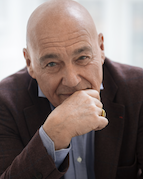
Vladimir Pozner
Mr. Pozner is a veteran journalist, bestselling author, and documentary filmmaker. He is the host of the top-rated weekly current affairs program on Channel One, Russia’s largest television network. Named the “Voice of Moscow” by CNN, Pozner is a regular commentator on Russia and the history of the Cold War in Western media. Mr. Pozner has won multiple Soviet, Russian, and American awards, including three Emmy certificates, ten TEFY awards (the Russian equivalent of the Emmy) and several international awards. He is internationally recognized and ranks among the most respected people in the television profession in Russia today.
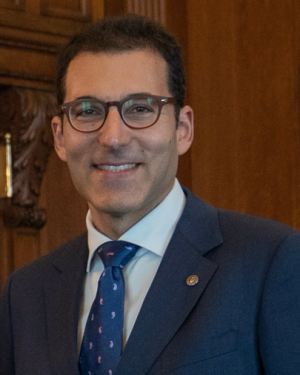
Matthew Rojansky
Matthew Rojansky is director of the Kennan Institute at the Woodrow Wilson Center in Washington, D.C. An expert on U.S. relations with the states of the former Soviet Union, especially Russia, Ukraine, and Belarus, he has advised governments, intergovernmental organizations, and major private actors on conflict resolution and efforts to enhance shared security throughout the Euro-Atlantic and Eurasian region. Previously, Rojansky was deputy director of the Russia and Eurasia Program at the Carnegie Endowment for International Peace. There, he founded Carnegie’s Ukraine Program, led a multi-year project to support U.S.-Russia health cooperation, and created a Track II task force to promote resolution of the Moldova-Transnistria conflict. He also served as an embassy policy specialist at the U.S. Embassy in Kyiv, Ukraine, and as a visiting scholar in the Research Division at the NATO Defense College. Rojansky previously served as executive director of the Partnership for a Secure America (PSA). Founded by former congressman Lee Hamilton (D-IN) and former senator Warren Rudman (R-NH) with a group of two dozen former senior leaders from both political parties, PSA seeks to rebuild bipartisan dialogue and productive debate on U.S. national security and foreign policy challenges. While at PSA, Rojansky orchestrated high-level bipartisan initiatives aimed at repairing the U.S.-Russian relationship, strengthening the U.S. commitment to nuclear arms control and nonproliferation, and leveraging global science engagement for diplomacy. Rojansky is an adjunct professor at Johns Hopkins SAIS and serves as U.S. Executive Secretary for the Dartmouth Conference, a Track II U.S.-Russian conflict resolution initiative begun in 1960. He has lectured at colleges and universities throughout the United States, Russia, and Europe, and is a member of the OSCE Cooperative Security Initiative and the Euro-Atlantic Security Leaders Group.
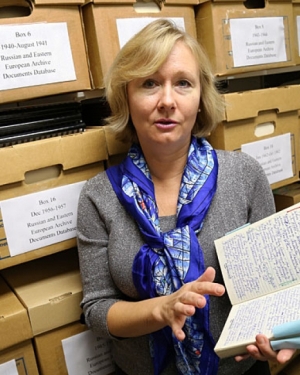
Svetlana Savranskaya
Dr. Svetlana Savranskaya is the director of Russia programs (since 2001) at the National Security Archive, George Washington University. She is the author, with Thomas Blanton, of the book The Last Superpower Summits: Gorbachev, Reagan and Bush (Central European University Press, 2016), which won Choice magazine’s “Outstanding Academic Title” award in 2017, and the editor of the book by the late Sergo Mikoyan, The Soviet Cuban Missile Crisis: Castro, Mikoyan, Kennedy, Khrushchev and the Missiles of November (Stanford University Press/Woodrow Wilson Center Press, 2012). Dr. Savranskaya won the Link-Kuehl Prize in 2011 from the Society for Historians of American Foreign Relations, recognizing the best documentary publication over the previous two years, for her book (with Thomas Blanton and Vladislav Zubok) Masterpieces of History: The Peaceful End of the Cold War in Europe 1989 (Central European University Press, 2010). She is author and coauthor of multiple publications on the Cuban Missile Crisis, nuclear learning, and the end of the Cold War, and numerous electronic briefing books on these subjects. She also serves as an adjunct professor teaching U.S.-Russian relations and contemporary Russian politics at the American University School of International Service in Washington, D.C. (since 2001). She earned her PhD in Political Science and International Affairs in 1998 from Emory University, where she studied with Professors Robert Pastor and Thomas Remington. A “Red Diploma” graduate of the Moscow State University in 1988, she went on to study at the Institute of World Economy and International Relations of the USSR Academy of Sciences in 1989-90 before moving to Emory, where she won a dissertation fellowship from the Institute for the Study of World Politics and worked as a Hewlett Fellow at the Carter Presidential Center in 1993. Her articles and chapters have appeared in the Journal of Strategic Studies, the Cold War International History Project Bulletin, and the Cambridge History of the Cold War, among many other publications. She is currently directing the Archive’s project documenting the Nunn-Lugar Cooperative Threat Reduction Program in the 1990s. Previously, she organized the Archive’s publication projects with the Moscow Helsinki Group and the Memorial Society, a series of seven summer schools for Russian regional university faculty (in cooperation with Kuban State, Voronezh State, and Saratov State), and a series of conferences in Georgia, Armenia, and Azerbaijan focusing on freedom of information laws and access to archives in the former Soviet space.
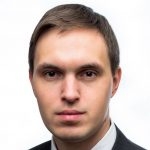
Oleg Shakirov
Oleg Shakirov is a consultant at the PIR Center. He graduated from South Ural State University with a degree in International Relations (2010). In 2015, he received an MA from the John Hopkins School of Advanced International Studies. In 2011-2012, Oleg worked as a news editor at the International Broadcasting section of RIA Novosti. He joined the PIR Center in September 2012 as an intern and has been working there as a consultant since 2015. In the summer of 2014, Oleg interned with the UN Department for Political Affairs. In 2016-2019, he worked as an expert on foreign policy and security at the Center for Strategic Research (Russia). Oleg is a member of the Younger Generation Leaders Network on Euro-Atlantic Security (YGLN), part of the European Leadership Network.
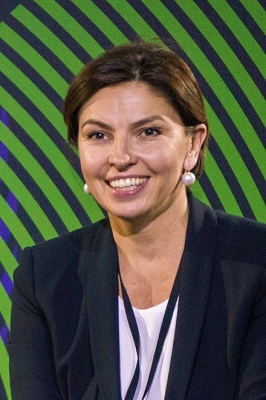
Natalia Sindeeva
Natalia Sindeeva is a Russian journalist and the founder and CEO of Dozhd media holding, which includes the Dozhd TV channel, the Republic.ru newspaper, and the Big City magazine. She is also the co-founder and former general producer of the Silver Rain radio station. She has been awarded the Media Manager of Russia prize three times and is an honorary academician of the Russian Academy of Radio. She is a graduate of the Michurinsk State Pedagogical Institute and the Stockholm School of Economics Russia, and she is a laureate of the Moscow Helsinki Group Prize for the Protection of Human Rights.
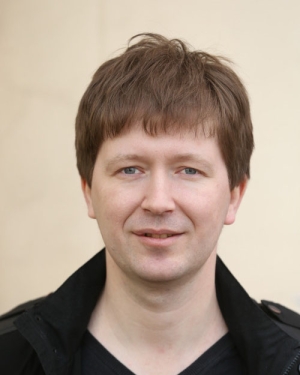
Andrei Soldatov
Andrei Soldatov is a Russian investigative journalist, co-founder, and editor of Agentura.ru, a watchdog of the Russian secret services’ activities. He has been covering security services and terrorism issues since 1999. He is coauthor with Irina Borogan of The New Nobility: The Restoration of Russia’s Security State and the Enduring Legacy of the KGB (PublicAffairs, 2010), The Red Web: The Struggle Between Russia’s Digital Dictators and the New Online Revolutionaries (PublicAffairs, 2015) and The Compatriots: The Brutal and Chaotic History of Russia’s Exiles, Émigrés, and Agents Abroad (PublicAffairs, 2019).
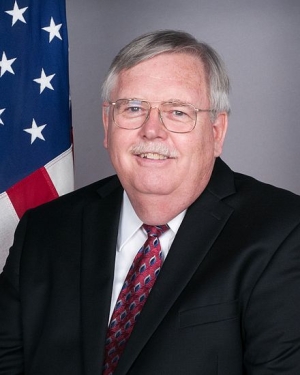
John Tefft
Ambassador John F. Tefft is a retired United States diplomat. He was a career Foreign Service Officer for more than 45 years, completing his service as the U.S. ambassador to the Russian Federation from 2014 to 2017. Prior to that, he served as the U.S. ambassador to Lithuania from 2000 to 2003, ambassador to Georgia from 2005 to 2009, and ambassador to Ukraine from 2009 to 2013. He worked from 2004 to 2005 as the deputy assistant secretary of state for European and Eurasian Affairs responsible for U.S. relations with Russia, Ukraine, Belarus, and Moldova. Ambassador Tefft originally retired from the Foreign Service in September 2013 and served as executive director of the RAND Corporation’s Business Leaders Forum from October 2013 to August 2014 until his recall to duty and confirmation as U.S. ambassador to the Russian Federation.
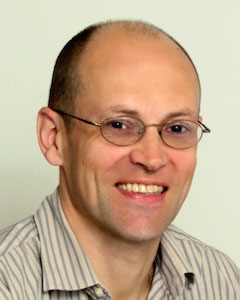
Andrei Tsygankov
Dr. Andrei P. Tsygankov is a professor at the departments of Political Science and International Relations at San Francisco State University. A Russian native, Tsygankov is a graduate of Moscow State University (Candidate of Sciences, 1991) and the University of Southern California (PhD, 2000). He published several books in English and Russian including Anti-Russian Lobby and American Foreign Policy (2009), Russia and the West from Alexander to Putin (2012), and The Strong State in Russia (2014), as well as many journal articles.
Taylor Valley
Taylor is an associate at the Negotiation Task Force at the Davis Center for Russian and Eurasian Studies at Harvard University and a doctoral student in the Department of Political Science at Northeastern University, specializing in International Relations and Comparative Politics. Her research focus is on international affairs, and she wrote her master’s thesis on Russo-Latin American relations. Taylor is also a senior associate with Negotiation Design & Strategy (NDS), a negotiation research and training company. She holds a master’s in Russian Studies from Harvard University and a bachelor’s in Political Science from Miami University.
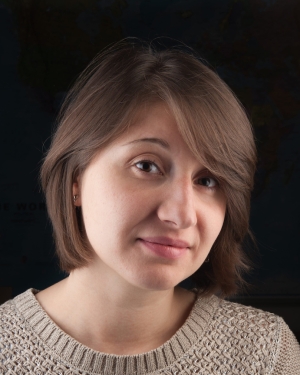
Olesya Vartanyan
Olesya Vartanyan is Crisis Group’s analyst for the EU Eastern Neighbourhood. Based in Tbilisi, she researches and produces reports on regional security issues in Armenia, Georgia, and Azerbaijan, with a particular focus on breakaway regions in the South Caucasus – Abkhazia, Nagorno-Karabakh, and South Ossetia. Olesya Vartanyan has worked on conflicts in the South Caucasus for more than ten years. Before joining Crisis Group in 2016, Olesya worked as a journalist, with a particular focus on security and conflict-related issues in Georgia and its breakaway regions. With her field reporting during the 2008 Russia-Georgia war, Olesya contributed to the groundbreaking investigations of the New York Times about the origins of the conflict. Enjoying unique access to Abkhazia, for a number of years she covered crisis developments in this region for Radio Free Europe/Radio Liberty. In 2013, Olesya received the first EU Monitoring Mission’s special prize in Peace Journalism. She holds master’s degrees from the King’s College London’s War Department and from the Georgian Institute of Public Affairs’ Media School.
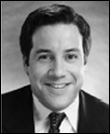
Jon Wolfsthal
Jon Wolfsthal is a senior advisor at Global Zero. From 2014 to 2017, he served as special assistant to former U.S. President Barack Obama and as senior director for arms control and nonproliferation at the National Security Council. In that post, he was the most senior White House official, setting and implementing U.S. government policy on all aspects of arms control, nonproliferation, and nuclear policy. Prior to that, he served as the deputy director of the James Martin Center for Nonproliferation Studies at the Monterey Institute for International Studies.
From 2009 to 2012, Wolfsthal served as the special adviser to U.S. Vice President Joe Biden for nuclear security and nonproliferation and as director for nonproliferation on the National Security Council. He supported the Obama administration’s negotiation and ratification of the New START arms reduction agreement with the Russian Federation and helped support the development of nuclear policy, including the 2010 Nuclear Posture Review.
He is the coauthor, with Joseph Cirincione, of Deadly Arsenals: Tracking Weapons of Mass Destruction and a leading authority on nuclear weapons policy, regional proliferation, arms control, and nuclear deterrence. His work has included assignments in Russia, North Korea, and travel to Iran. He is the author of dozens of scholarly articles and op-eds and has appeared on or been quoted in most leading domestic and international news media outlets. He is also a former nonresident scholar in the Nuclear Policy Program at the Carnegie Endowment for International Peace.
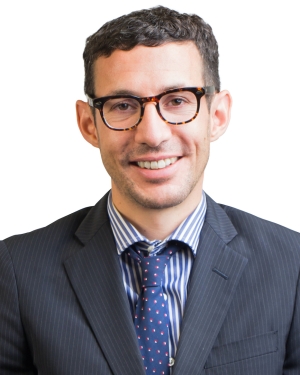
Joshua Yaffa
Joshua Yaffa is a journalist based in Moscow, where he is a contributor to the Economist, among other publications. He also has written on Russia and the former Soviet Union for the New York Times, the Wall Street Journal, Foreign Affairs, the New Republic, Bloomberg Businessweek, and others. He is a visiting scholar at the Harriman Institute at Columbia University and previously taught at the Graduate School of Journalism at Columbia University. Joshua Yaffa is currently a Moscow correspondent for the New Yorker. His first book, Between Two Fires: Truth, Ambition, and Compromise in Putin’s Russia, was published in January 2020.
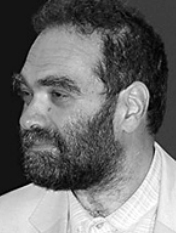
Andrei Zorin
Dr. Andrei Zorin is a professor of Russian and a fellow of New College at Oxford University as well as a professor in the Russian Presidential Academy of National Economy and Public Administration. He is a member of the editorial boards of the journals New Literary Observer, Slavic Review, and Cahiers du Monde Russe. His areas of specialization are Russian Literature and Russian cultural history, especially of the eighteenth and nineteenth centuries. His research includes Russian literature and culture of the eighteenth through the beginning of the nineteenth centuries in the European context, the cultural history of emotions, and the history of the cultured community in Russia and in the USSR. Dr. Zorin graduated from Moscow State University (1978) and completed his dissertation (1983) and habilitation (2000) also at Moscow State University.
